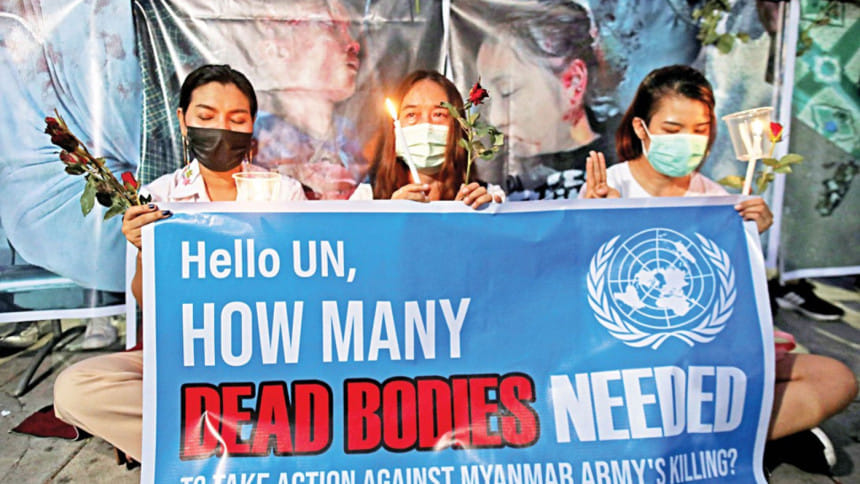Violence continues to escalate in Myanmar

The people of Myanmar have been protesting the Myanmar military's unlawful seizure of power since the beginning of February. The country's military seems to have only gotten bolder in their total disregard for human rights and the democratic right to protest of every citizen—it started with disproportionate force and has now resorted to downright violence in putting an end to the pro-democracy protests in the country. The images coming out of Myanmar are grim, with pictures of bloodied teenagers lying on the streets flooding social media. Reuters reports the death toll to be nearing 200, with as many as 20 protesters being shot on Monday alone.
Has the sluggish reaction of the international community emboldened the military to continue to use such brutal and repressive tactics against pro-democracy protesters (which include using live ammunition on unarmed civilians and mass detentions of protesters and political/civil society actors, including 37 journalists)? So far, the US, the UK and the EU have only imposed some very basic sanctions on the military leaders who directed the coup. Yesterday, it was reported that the EU will begin to sanction the Myanmar military's business interests from next week. While this is a step in the right direction, we wonder why it took them so long to reach this decision, especially since rights organisations have been calling for targeted sanctions and an arms embargo on Myanmar ever since the military coup took place.
The silence of Myanmar's regional allies with regard to the military coup is conspicuous, to say the least. We must remember that unrest in Myanmar has always spilled over into our borders and has had a negative impact on the region, especially Bangladesh. The Myanmar military's genocide against the Rohingya has forced Bangladesh to provide refuge to 1.1 million refugees on humanitarian grounds. How will we be impacted in the coming days, especially as reports resurface of brutal force being used, especially against minorities in Myanmar?
In early March, we warned in these very pages that as long as China, India, Bangladesh, the ASEAN countries and the rest of the international community fail to work together and strongly condemn the unlawful military coup in Myanmar, we run the risk of watching history repeat itself. Our fears have been confirmed, as we once again witness the oppression of the people of Myanmar by the unelected military leaders who are continuing to act with impunity. If we do not collectively act now, Myanmar's journey to democracy is likely to come to an abrupt and violent end.

 For all latest news, follow The Daily Star's Google News channel.
For all latest news, follow The Daily Star's Google News channel. 



Comments